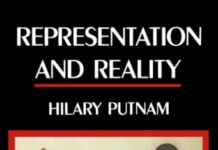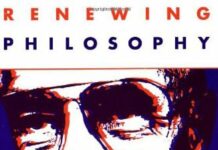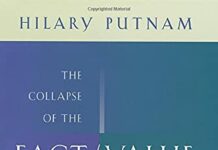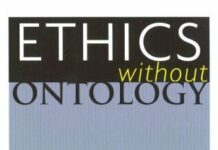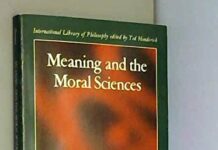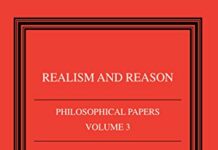
Ebook Info
- Published: 1995
- Number of pages: 608 pages
- Format: PDF
- File Size: 30.79 MB
- Authors: Hilary Putnam
Description
Hilary Putnam has been convinced for some time that the present situation in philosophy calls for revitalization and renewal; in this latest book he shows us what shape he would like that renewal to take. Words and Life offers a sweeping account of the sources of several of the central problems of philosophy, past and present, and of why some of those problems are not going to go away. As the titles of the first four parts in the volume―“The Return of Aristotle,” “The Legacy of Logical Positivism,” “The Inheritance of Pragmatism,” and “Essays after Wittgenstein”―suggest, many of the essays are concerned with tracing the recent, and the not so recent, history of these problems.The goal is to bring out what is coercive and arbitrary about some of our present ways of posing the problems and what is of continuing interest in certain past approaches to them. Various supposedly timeless philosophical problems appear, on closer inspection, to change with altered historical circumstances, while there turns out to be much of permanent value in Aristotle’s, Peirce’s, Dewey’s, and Reichenbach’s work on some of the problems that continue to exercise us.A unifying theme of the volume as a whole is that reductionism, scientism, and old-style disenchanted naturalism tend to be obstacles to philosophical progress. The titles of the final three parts of the volume―“Truth and Reference,” “Mind and Language,” and “The Diversity of the Sciences”―indicate that the sweep of the problems considered here comprehends all the fundamental areas of contemporary analytic philosophy. Rich in detail, the book is also grand in scope, allowing us to trace the ongoing intellectual evolution of one of the most significant philosophers of the century.
User’s Reviews
Editorial Reviews: Review “The book strikes one…as fresh and exciting. This is undoubtedly due to its highly critical approach to current analytical philosophy. Analytical philosophy seems recently to have been overcome by the need to reflect on and challenge its past. Putnam has earned the right to hit out at that past if anyone has.”―Max de Gaynesford, Radical Philosophy“Putnam is one of the foremost philosophers writing today and this volume collects many of his forays in current philosophical discourse.”―Reader’s Review“Putnam has in mind the difference between respecting science and accepting materialist ideology. Specifically, he argues against metaphysical realism, the fact/value and fact/convention dichotomies, and reducing intentionality to physics or regarding it as a mere illusion, and for the connection between truth and justification… Putnam writes with his usual clarity and vigor.”―Robert Hoffman, Library Journal About the Author Hilary Putnam was Cogan University Professor, Emeritus, at Harvard University.James Conant is Chester D. Tripp Professor of Humanities at the University of Chicago.
Reviews from Amazon users which were colected at the time this book was published on the website:
⭐If you want a single volume which accurately represents Hilary Putnam’s philosophical evolution from a hard-nosed quasi-Logical Positivist, to a Humanist who can acknowledge the value of participation in a religious tradition (Judaism in his case), this is it. I am also grateful that many (not all) of the essays are argued in straight-forward English prose with a minimum of jargon. This makes his latter essays more accessible to the average reader than his earlier ones on mathematical logic. He does occasionally lapse into argument by name calling (such as rejecting Platonism in philosophy of mathematics by calling it “medieval”). But this only happens infrequently, and is usually frollowed up with more substantive arguments. The mature Putnam has replaced his loyalty to the philosophical tradition of Logical Positivism with loyalty to (or at least participation in) the tradition of American Pragmatism. What this amounts to for Putnam is that 1) the knowing situation is always community based (instead of being based on an individual’s consciousness), and 2) that the simplest set of resources which makes knowing possible is already complex. It consists of a) sensory awareness, b) deliberate actions within the world of causally-linked objects, and c) real values and norms which ground the sense in which the growth of knowledge is progressive. Putnam is at his very best, in my view at least, when he is criticizing various contemporary analytic and “post-modern” philosophers by showing how their value skepticism is self-defeating. (Their skeptical conclusions all exhibit one or another form of pragmatic self-defeat. “I know there is no knowledge” is one such type of self-defeat. “It is important to me that you realize nothing really is important” is another.) Mainly, Putnam is rewarding to me because he shows the skeptical attitude I have held in private about much analytical and “post-modern” philosophy really is justified. He has provided me with a tradition in which I too can feel at home. Fred Hallberg
Keywords
Free Download Words and Life in PDF format
Words and Life PDF Free Download
Download Words and Life 1995 PDF Free
Words and Life 1995 PDF Free Download
Download Words and Life PDF
Free Download Ebook Words and Life
